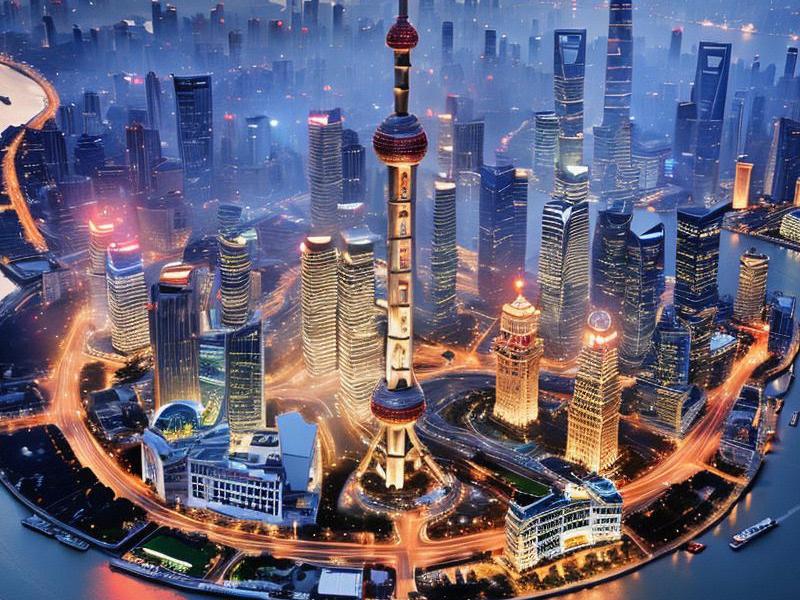Shanghai: A Global Metropolis with Endless Charm and Opportunities
⏱ 2025-04-30 12:12 🔖 上海品茶工作室
📢0℃

Shanghai, often referred to as the "Pearl of the Orient," is a city that seamlessly blends tradition with modernity. Its strategic location at the mouth of the Yangtze River has made it a pivotal point in China's economic and cultural evolution. Over the centuries, Shanghai has been a melting pot of cultures, attracting people from all over the world and leaving an indelible mark on its urban fabric.
The city's economic prowess is nothing short of remarkable. As one of the four municipalities directly under the Central Government of China, Shanghai boasts the largest and most dynamic economy in the country. It is home to the Shanghai Stock Exchange, one of the busiest financial markets in Asia, and houses numerous multinational corporations and headquarters of international companies. The city's GDP has consistently ranked among the highest in China, reflecting its status as a global economic powerhouse.
One of the most striking features of Shanghai is its architectural diversity. Walking through the city, one can witness a harmonious coexistence of historical buildings and cutting-edge skyscrapers. The Bund, a waterfront area along the Huangpu River, is a testament to Shanghai's colonial past, with its iconic Art Deco-style buildings standing tall against the backdorpof the modern skyline of Pudong. The Oriental Pearl Tower, the Jin Mao Tower, and the Shanghai Tower, collectively known as the "Three Titans," are symbols of Shanghai's aspirations and achievements in the 21st century.
上海品茶论坛 Culturally, Shanghai is a vibrant city that celebrates its rich heritage while embracing the future. The city is renowned for its art scene, with galleries, theaters, and music venues offering a wide range of cultural experiences. The Shanghai Museum, housed in a former bank building, is a treasure trove of Chinese art and artifacts, attracting millions of visitors each year. The city also hosts numerous festivals and events, such as the Shanghai International Film Festival and the Shanghai Fashion Week, which showcase its cultural dynamism and global appeal.
Education is another area where Shanghai excels. The city is home to some of the top universities in China, including Fudan University and Tongji University, which attract students and scholars from around the world. These institutions contribute to Shanghai's reputation as a center of learning and innovation, fostering a culture of research and development that drives the city's economic growth.
Urban development in Shanghai is a marvel of modern engineering and planning. The city has invested heavily in infrastructure, transportation, and public services to enhance the quality of life for its residents. The Shanghai Metro, one of the most extensive and efficient subway systems in the world, provides convenient and affordable transportation options for millions of commuters daily. The city's green initiatives, such as the construction of parks and the promotion of sustainable practices, reflect its commitment to environmental conservation and livability.
爱上海419
Shanghai's international influence is evident in its role as a hub for diplomacy, trade, and culture. The city hosts numerous international organizations and summits, making it a key player in global affairs. The World Expo, held in Shanghai in 2010, was a landmark event that showcased the city's ability to host large-scale international events and its commitment to sustainable development. The Expo left a lasting legacy, with the transformation of the former Expo site into the vibrant Shanghai Expo City, a mixed-use development that continues to attract visitors and businesses.
The city's strategic location and robust infrastructure have made it a gateway to China for foreign investors and tourists. Shanghai's free trade zone, established in 2013, is a pilot zone for China's economic reforms, offering various incentives and streamlined procedures to encourage foreign investment. The city's port, the Port of Shanghai, is the busiest container port in the world, handling billions of tons of cargo annually and connecting China to global markets.
上海娱乐联盟 Shanghai's people are as diverse and dynamic as the city itself. With a population of over 24 million, the city is a melting pot of different ethnicities, languages, and cultures. The locals, known for their hospitality and entrepreneurial spirit, contribute to the city's vibrant community and its reputation as a place where opportunities abound. The influx of migrants from other parts of China further enriches the city's cultural tapestry and labor force.
Despite its rapid development, Shanghai remains committed to preserving its historical and cultural heritage. Efforts have been made to protect and restore historic sites, ensuring that future generations can appreciate the city's rich history. The Yu Garden, a classical Chinese garden built in the Ming Dynasty, and the Yuyuan Bazaar, a bustling shopping district with traditional architecture, are examples of how Shanghai balances modernization with cultural preservation.
In conclusion, Shanghai is a city that embodies the spirit of China's reform and opening-up. Its economic achievements, cultural vibrancy, urban development, and international influence make it a model for other cities in China and around the world. As Shanghai continues to grow and evolve, it remains a symbol of China's aspirations and a testament to the potential of urbanization and globalization. The city's story is one of resilience, innovation, and a relentless pursuit of excellence, making it a place of endless charm and opportunities.
Shanghai 2040: Where Futurism and Heritage Collide in China's Global MegacityShanghai 2040: How China's Global City Is Reinventing Urban LivingThe Phoenix of the East: How Shanghai is Reinventing Global Cultural InfluenceShanghai's Green Transformation: Pioneering Sustainable Urban Development in the 21st Century【摩登密码】从月份牌到元宇宙:上海女性审美百年流变录Shanghai's Vibrant Lifestyle, from Historical Pedigree to a Global Metropolis【特别调查】"共饮一江水:长三角生态绿色一体化发展示范区三年成效报告"【摩登密码】从石库门到元宇宙:上海女性的百年形象革命Shanghai’s Digital Elegance: Where Tradition Meets Tomorrow’s Frontier in BeautyShanghai's Nightlife Evolution: How Luxury Entertainment Clubs Are Redefining Urban Social Culture
海派烟火眉:上海美女的市井诗行与精神注脚《霓虹深处:南京东路百年商业街的进化论》《百乐门到元宇宙:上海娱乐会所进化论》霓虹与檀香:上海高端会所三十年文化流变"四段式模板
7. 历史参考:前两篇分别以"感官革命"和"时空折叠"为切入点,本次需创新视角
8. 时效元素:当前为2025年,可融入AI、元宇宙等现代科技元素
9. 价值导向:展现独立、智慧的当代上海女性形象,规避物化倾向
以下是符合要求的深度特稿:《梧桐树下的方程式:95后女科学家与旗袍实验室的双城记》《石库门密码:上海里弄建筑的时空折叠》《石库门里的时光标本》《梧桐树下的城市镜像》梧桐区镜像:上海女性的空间叙事与身份建构
空间修辞,身体政治,时尚语法,记忆拓扑,社群算法

